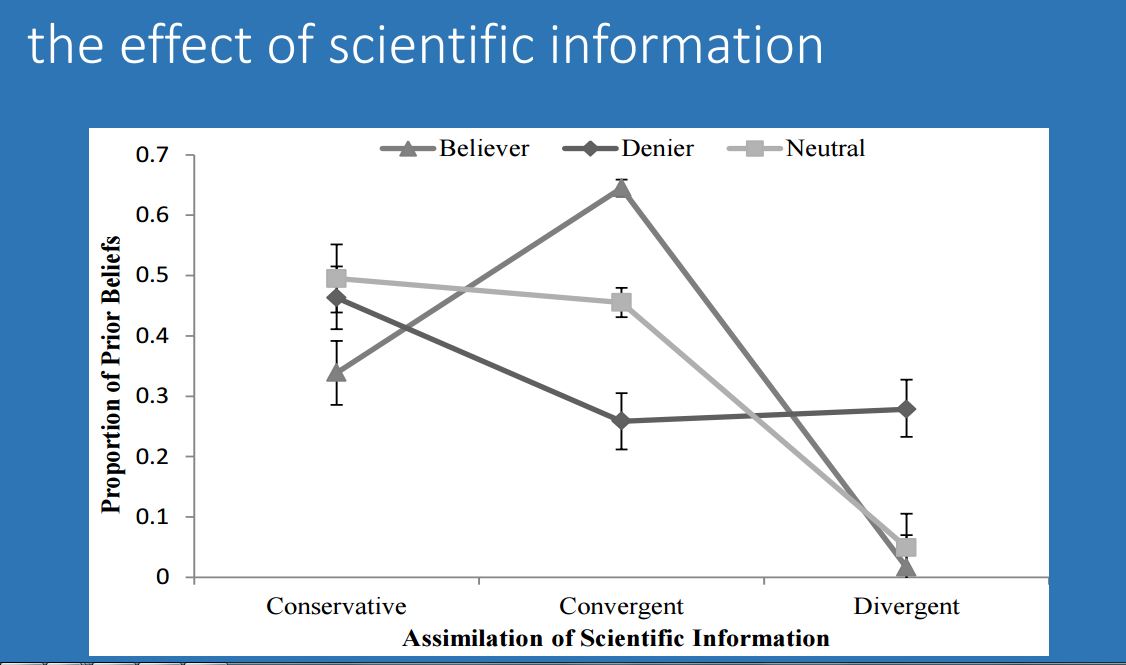At the Biotech Literacy Project Boot Camp, held a week ago at the U.C. Davis World Food Center, I was on a journalism roundtable with Brooke Borel, Keith Kloor and Razib Khan, moderated by Professor Kevin Folta, and I was asked about the most important thing for scientists to keep in mind regarding increasing science acceptance.
It's always difficult to pick just one but given the nature of the assault on food science, 'don't engage in deficit thinking' was my response. Basically, don't assume the other person simply lacks the proper facts or that if things are framed properly it would change their minds. It probably will not, at least for the most vocal critics.
The next day I moderated a panel on GMOs and one of the panel members was Professor Brandon McFadden of the the University of Florida Institute of Food and Agricultural Sciences and he put up a fascinating graphic from a survey of 961 people to see if data made a big difference. The baseline questions were “Genetically modified crops are safe to eat” and “The Earth is getting warmer because of human actions”, which are denial issues for the American left and right, respectively.

McFadden and Lusk (2015) Food Policy
Some things in this graphic he used stick out right away, namely that people who were truly neutral changed their minds a lot toward science acceptance but people who already accepted science didn't change much - nor did deniers.
We have a tendency to grease squeaky wheels but diminishing returns kick in rather quickly. There isn't much benefit to standing outside a Whole Foods in California talking about science - or writing to their representatives in Congress asking them to change. It may be that once the science is settled not much more can be done to convince the public and it is better just to wait until a new fear and doubt fad takes hold and replaces the existing ones.
Citation: Citation: McFadden, B.R., J.L. Lusk, “Cognitive Biases in the Assimilation of Scientific Information on Global Warming and Genetically Modified Food.” Food Policy, Volume 54, July 2015, Pages 35–43 doi:10.1016/j.foodpol.2015.04.010


